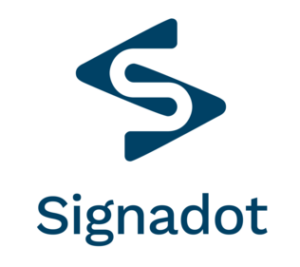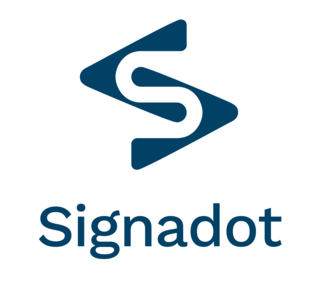To talk about content creation is inevitably to talk about digital platforms, the avenues which have made making content for a living possible. This is crucial because while making this modern career path possible, it is also the reason the current creator’s economy is rife with unfair compensation practices. This discrepancy in fair remuneration from platforms has become a prevalent concern, eclipsing the creative landscape. Many platforms, while offering a stage for creators to showcase their talents, fall short regarding equitable compensation models.
Across various sectors, be it music, gaming, writing, or visual arts, the struggle for fair compensation remains a pressing issue, leading to the exploitation of countless talented individuals, according to some researchers. But some entrepreneurs/content creators are fighting to fix it, allowing creatives to earn a decent paycheck for their work.
In this context, we sat down with Stuart Meczes, Creative Director at Contnt, an up-and-coming platform that wants to change how the creator’s economy thrives. Stuart explains that it has become evident that certain platforms are imposing excessively high charges that cannot be justified, and that this exorbitant pricing scheme is leaving talented creators with a mere $100 to $200 per week for their creative efforts.
“This financial inadequacy often compels many of these creators to reluctantly abandon their passion due to their inability to sustain themselves,” adds Meczes. “Furthermore, the number of followers does not always equate to the authenticity or quality of content. Often, creators with smaller followings exhibit exceptional content that unfortunately remains overlooked due to marketing dynamics or mere chance.”
Creators united
Stuart’s journey into the world of content creation reflects a fusion of diverse expertise and a fervent passion for writing (he has published many novels!). With a background in marketing and content creation across varied sectors, including web3 endeavors, Stuart’s evolution into an executive role at Contnt had a random start.

“I stumbled upon a small Discord channel discussing early-stage internet development. This led to conversations with the CEO, and eventually, my role expanded to that of the creative director,” Stuart recalls.
At Contnt, the genesis of the company’s mission lies in rectifying the systemic disparities prevalent in content creation. Founded on the core values of eradicating exploitation and promoting fair compensation, the platform’s origins are rooted in the observation of an egregious disparity within Canada’s music scene by founders Eli Christo Yazigi and Mario Katra.
“In Canada, there existed a significant divide; while some artists thrived, many struggled financially,” Stuart explains. “This stark inequality stemmed from creators coerced into accepting unfair compensation for their hard work.”
The equitable compensation question
For this reason, Contnt.io initially was conceptualized as providing a platform for musicians to release their music, interact with fans, and receive fair royalties. However, an expansive market research phase revealed that exploitation extended across all content creation sectors, leading to the platform’s evolution into a secure environment where creators could earn equitable compensation.
“In the current landscape, existing systems tend to favor already-popular creators, leaving those ‘under the radar’ struggling to gain visibility,” Stuart notes. “To address this, we’ve implemented algorithms designed to ensure a level playing field for all creators.”
When logging on, users will be greeted with a diverse array of creators showcased on the homepage, without prejudice to their follower count. This fair algorithm champions equality among content creators, potentially highlighting individuals with even just five followers, according to Stuart.
The platform further levels the playing field with a subscription-based model similar to Patreon, where creators can set up monthly subscriptions or offer pay-per-view access to exclusive content, such as a special concert hosted by a Montreal artist for a nominal fee of $10, granting one-time entry.
Creators will also have the possibility to access workshops designed to enhance their skills and foster collaboration with other creatives. Additionally, creators have control over their financial preferences, including the acceptance of cryptocurrencies, enabling them to write their own rules. Fans seeking content access will purchase credits using various payment methods.

Will algorithms free creators?
Stuart highlights the importance of algorithms for the content creation industry. In Contnt’s case, its algorithm operates by gauging robust levels of engagement from fans, like subscriptions and comments, thereby naturally amplifying visibility. “Furthermore, it identifies established creators within our ecosystem. However, it emphasizes consistency and activity over sheer popularity. Actively participating on the platform, maintaining a steady output of content, and fostering engagement within the community wield significant influence over one’s visibility,” comments Meczes.
This enhanced visibility will be facilitated through various channels, including featured spots on the homepage, prominent displays within relevant niches, and the provision of equal opportunities for all creators.
“Our algorithm evaluates high levels of interaction from fans, ensuring visibility through various avenues without interference in creators’ external sales,” Stuart explains, emphasizing the platform’s commitment to transparency and fairness.
Furthermore, Contnt’s revenue-sharing model aims to empower creators through innovative avenues like NFTs, granting ownership and royalties for subsequent sales. The platform takes a 10% cut from the initial sale but abstains from subsequent transactions, fostering multiple revenue streams and sustainable scalability.
The platform’s ethos transcends just economic empowerment. It also advocates for free speech while ensuring a safe and collaborative environment for creators, employing a nuanced content moderation approach that prioritizes human judgment over hasty algorithmic decisions. Looking ahead, Contnt’s roadmap brims with initiatives geared towards empowering creators through workshops, VR experiences, and interactive features, culminating in a comprehensive toolkit for content creation.
As Stuart Meczes elaborates on the upcoming plans, it’s evident that Contnt is not merely a platform, but a movement poised to redefine the landscape of content creation, championing fairness, empowerment, and innovation. The final words will be had by consumers and the creator’s themselves, if they can truly create an ecosystem that is good for everybody.












